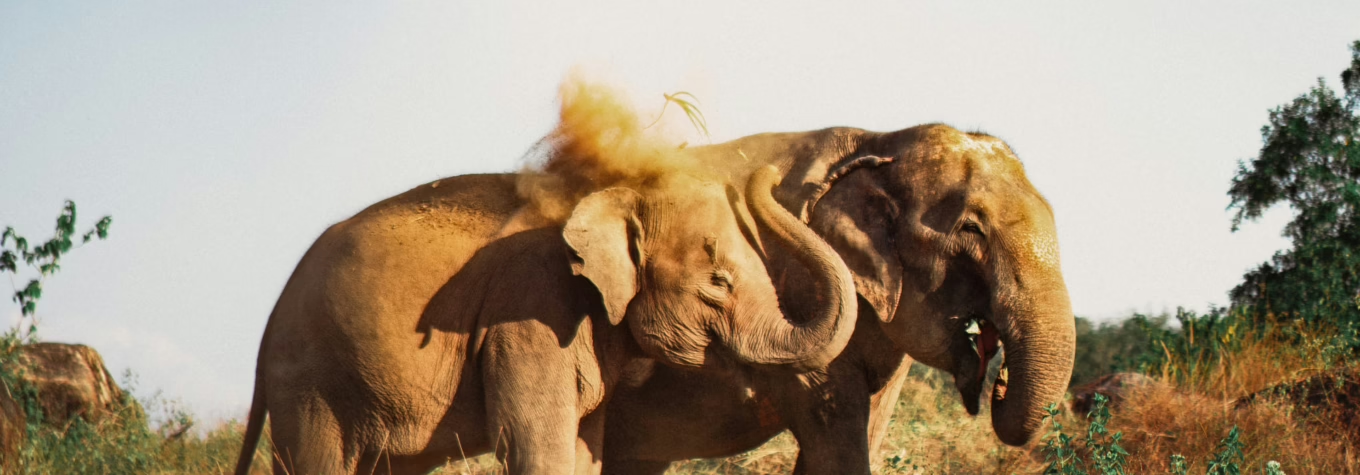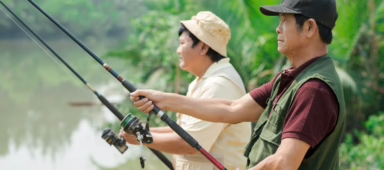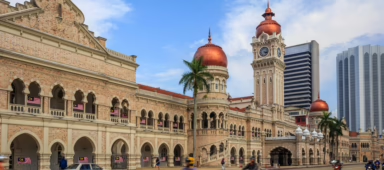The increased global awareness of animal welfare has reached Phuket, where initiatives that put the wellbeing of elephants front and centre have recently taken off. Jamie Fullerton investigates a brighter future for Thailand’s pachyderms
Lunch in the open-air restaurant of south Phuket’s Tree Tops Elephant Reserve is interrupted by a loud, comical noise. Tong Tip, a 40-year-old Asian elephant appears to be auditioning for Thailand’s national brass brand, trumpeting thunderously as she wallows in the pond overlooked by the eatery.
Louise Rogerson and Russel Withers, the reserve’s directors, place veggie-laden forks down in surprise. “That’s the first time I’ve heard Tong Tip vocalise,” says Russell, grinning like a proud parent. His smile widens as the elephant’s trunk pokes out of the water, swivelling like a periscope.
Louse and Russell have worked in elephant reserves around Southeast Asia for years, so one might not expect them to get emotional over a pachyderm parping. However, Tong Tip’s trumpeting is a small signifier of a big change occurring for both the Tree Tops elephants and greater Phuket.
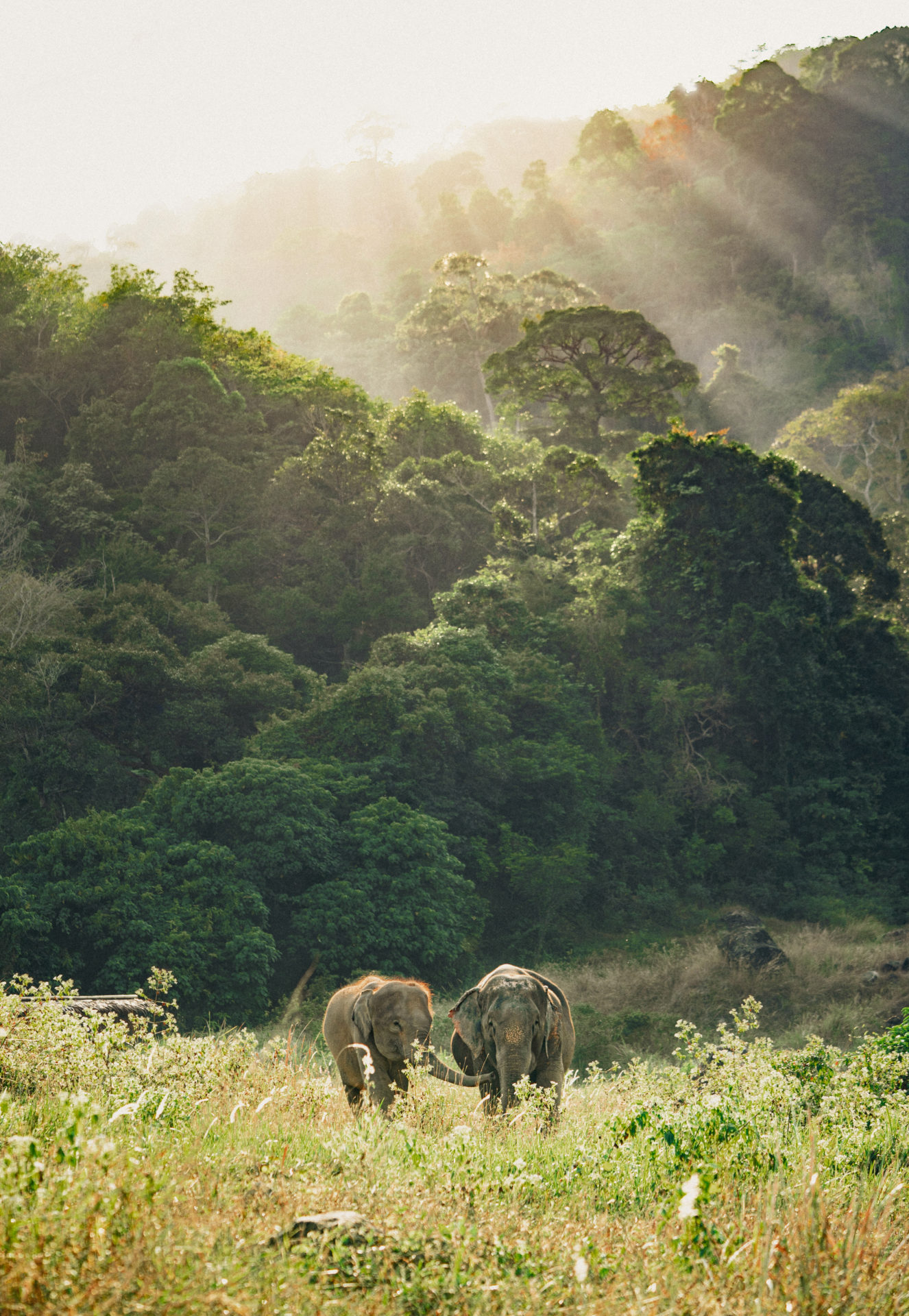
There are approximately 30 elephant parks in Phuket, and as recently as 2016, most of them offered elephant rides. Now less than a third do, with venues such as Tree Tops helping the public get wise to the cruelty underpinning the activity.
At the start of 2019, before Tree Tops owner Wallop P Luengdhama took over, most of the seven female elephants living in the lush eight-hectare site were hauling tourists around on saddles. They had little cause to trumpet – which the animals are believed to do to express happiness – eking out laborious existences on a tourist park that operated for around 20 years.
Wallop wanted to take over a place that seemed increasingly outdated, that didn’t reflect the sharp rise in global awareness of animal welfare that’s occurred over the past decade – an awareness due largely to social media. This was starkly shown in April 2019 when shocking photos, reportedly in Phuket, of a riding elephant with deep wounds on its head went viral online.
Changing the game
At Tree Tops, some elephants have saddle scars. Russell explains that due to the widespread acceptance of horse riding, it can be difficult to convince tourists that elephant riding is bad for the animals. “When somebody rides a horse, the horse is not getting ridden by many people, all day, in circles,” he says. “The problem is the sheer volume of work, often combined with a lack of food, water and rest.”
Riding and bathing with elephants is banned in Tree Tops and mahouts don’t carry bullhooks – metal-tipped sticks commonly used to control elephants. Chains, which are used to restrict elephants’ movements, are also banned, and the mahouts’ instructions are to let the elephants roam.
Louise leads me to the edge of a dense forest area into which a nine-year-old elephant named Fah Sai is poking her head, flapping her ears as she stuffs foliage into her wobbly pink gob. Nearby, Nam Gaew, a 50-year-old female, whacks pineapple trees against her knee with her trunk, breaking them up before snarfing them.
Following the elephants as they go aobut their new, saddle-free business is a rather glorious experience.
Before launching Tree Tops, Louise and Russell had, in 2016, helped set up Phuket Elephant Sanctuary (PES), which was the area’s first ethical elephant attraction. Owned by Phuket-born Montri Todtane, who used to run an elephant-riding park, PES was the first elephant site in the region to prioritise animal welfare and offer no riding or bathing with the elephants.
It was Sanduen “Lek” Chailert who convinced Montri to renounce elephant riding and open the 12-hectare PES. A legend in the Thai elephant scene, Lek is the founder of Chiang Mai’s Elephant Nature Park as well as the Save Elephant Foundation, a nonprofit organisation that protects captive elephants.
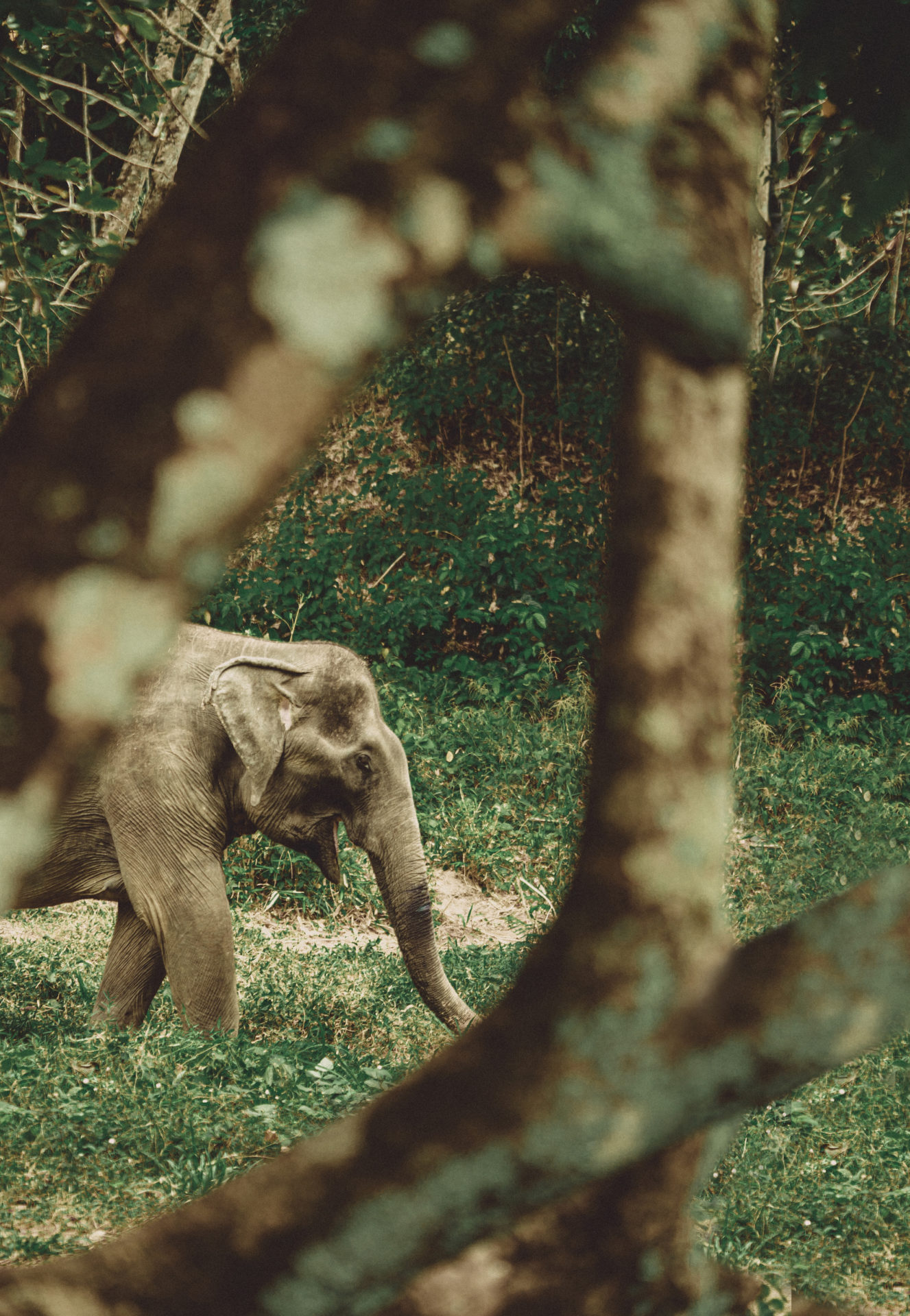
In 2015, Lek bought an injured elephant named Tubtim from Montri and cared for her in her park, then invited Montri to visit the animal. He was impressed by the non-invasive style of the site, where no riding is allowed and free-roaming is encouraged. “Lek opened my eyes,” Montri says, sitting in the PES restaurant overlooking a field where his elephants roam. It’s flanked by a river and jungle area where the animals swim, scoff and stroll freely.
Montri was initially sceptical about a “hands-off” elephant park being able to succeed in Phuket. Like Tree Tops, PES is a business, not a charity, and according to Lek it took over a year of persuasion to convince him to close his riding park. “Lek said, ‘If you believe in this and want to help elephants, people will understand you,'” Montri shares.
“A lot of people laughed about the plan,” says Vincent Gerards, PES’ marketing director. “There was nothing like it here and people thought, ‘How can you charge 3,000 baht and not offer touching or riding?’ But the vision was a space as close to the animals’ natural habitat as possible.”
The timing turned out to be perfect. In 2016, the year PES opened, TripAdvisor stopped selling tickets to elephant-riding parks globally due to concerns about cruelty, and many Phuket tour companies had become reluctant to promote riding.
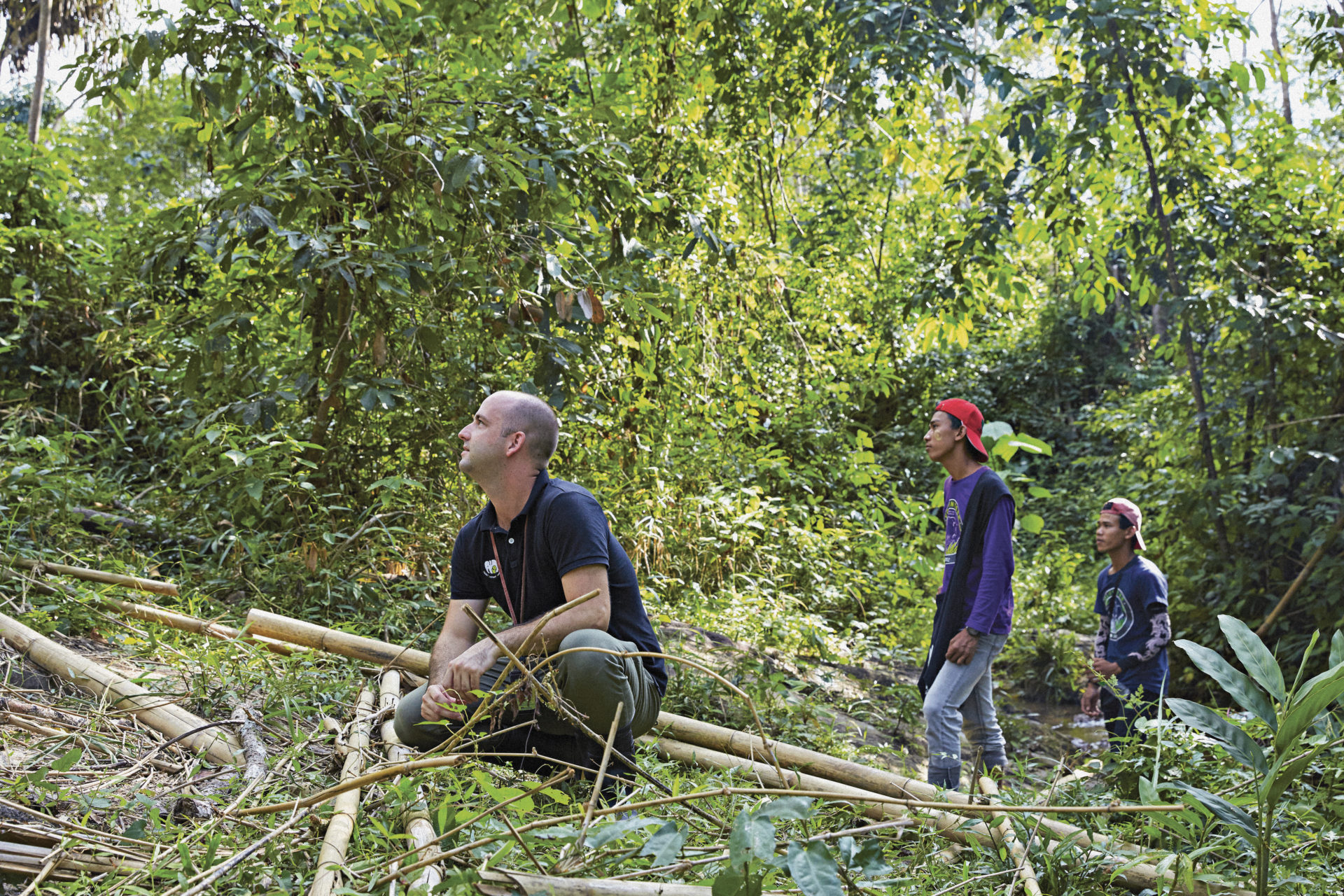
Exploring PES is a serene experience. I tramp through jungle to see Tong Kwaw, a burly 39-year-old elephant, enjoying embedding herself in foliage. She was bought by the park after she spent 20 years working in ridng camps. In the main field area, Gaew Ta, a blind elephant in her fifties, calmly walks past me towards a river where two other elephants are bathing.
Montri says that if Gaew Ta hadn’t been brought by PES, she would probably have been worked to the point of death, despite her vision problems. There are nine elephants on-site but according to Montri the sanctuary can accommodate up to 25. He encourages visitors to report elephant abuse that they see elsewhere in Thailand.
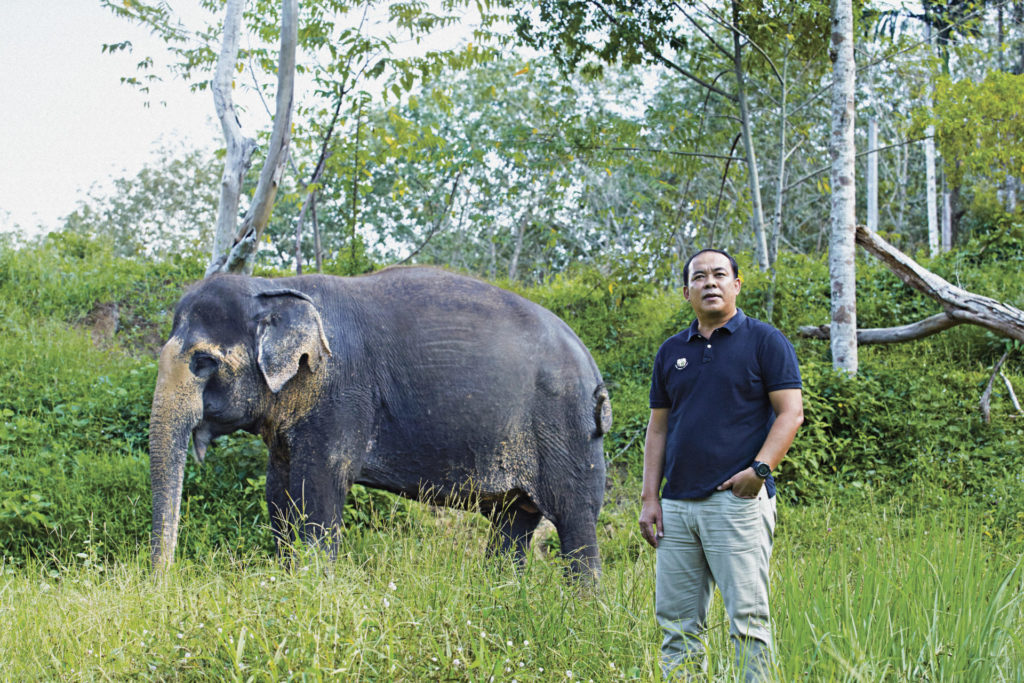
That was how Sai Tong, a 56-year-old elephant, ended up in Phuket. In 2018, a tourist who had previously visited PES saw her, skeleton-thin, tied to a tree on the Thai island of Koh Lanta. After receiving the tourist’s call, PES staff convinced Sai Tong’s owner to sell her to them, then transported her to the park.
“Older and injured elephants especially should stop working,” says Montri. “Often, tourists see a big elephant that they think can carry people, but maybe it’s just 60 years old.”
During visits to PES and Tree Tops, it’s easy to assume that idyllic free-roaming is the norm for captive elephants in Phuket. But despite the recent emergence of venues such as these, captive elephant cruelty is still rife in Thailand.
One problem is that many elephant attractions falsely bill themselves as ‘ethical’, knowing it’s a buzzword that tourists seek out.
Any business in Thailand can legally call itself a “sanctuary” or “reserve” without meeting set standards of animal care, and other venues have brazenly copied PES’ branding. “They use words like ‘sanctuary’ and ‘retirement’, and people think they are places where elephants are treated humanely,” says Lek, on the phone from Chiang Mai.
“But sometimes they still offer rides [and] bathing, or force elephants to pose for selfies. Some have two sections – one where you ride elephants, then across a road there’s a ‘sanctuary’. But it’s the same owner using the same elephants.”
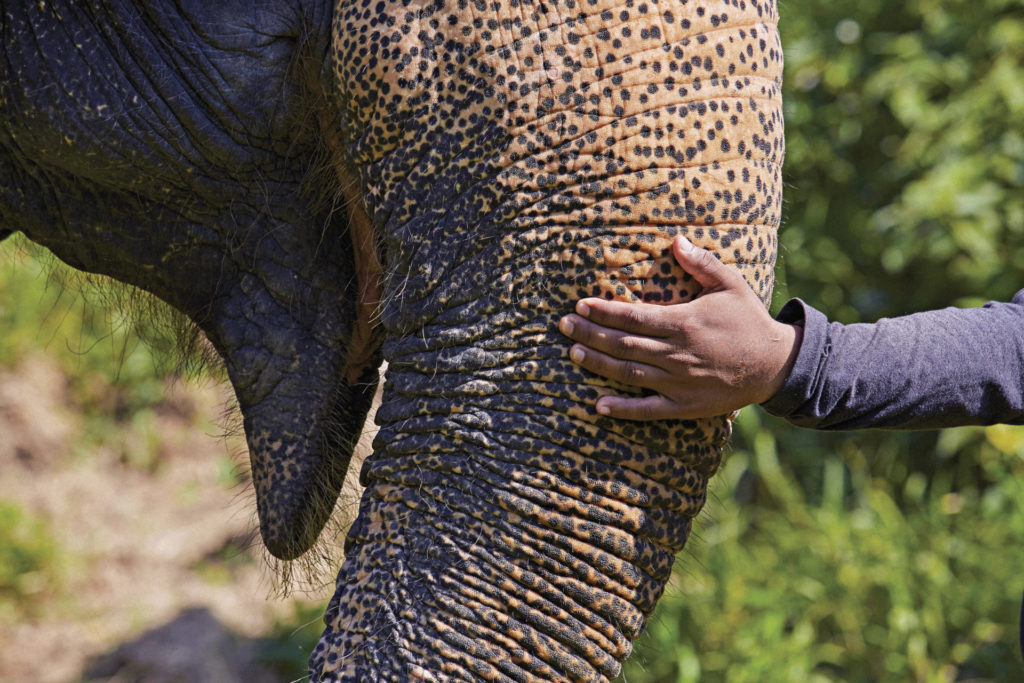
Montri points out that authorities put a cap on the number of captive elephants allowed to work in Phuket. He says this has resulted in the animals often being moved between venues with varying standards of care, as owners seek bigger rental fees. “Also, sometimes in [the] low season, elephants have nothing to do for tourists, so they are moved on to logging.”
PES and Tree Tops own their elephants, eliminating this risk. “A sanctuary should be a genuine final home,” says Vincent. “We don’t want elephants to go back to riding after a few years. If you rent elephants, you can’t guarantee they are safe for life.”
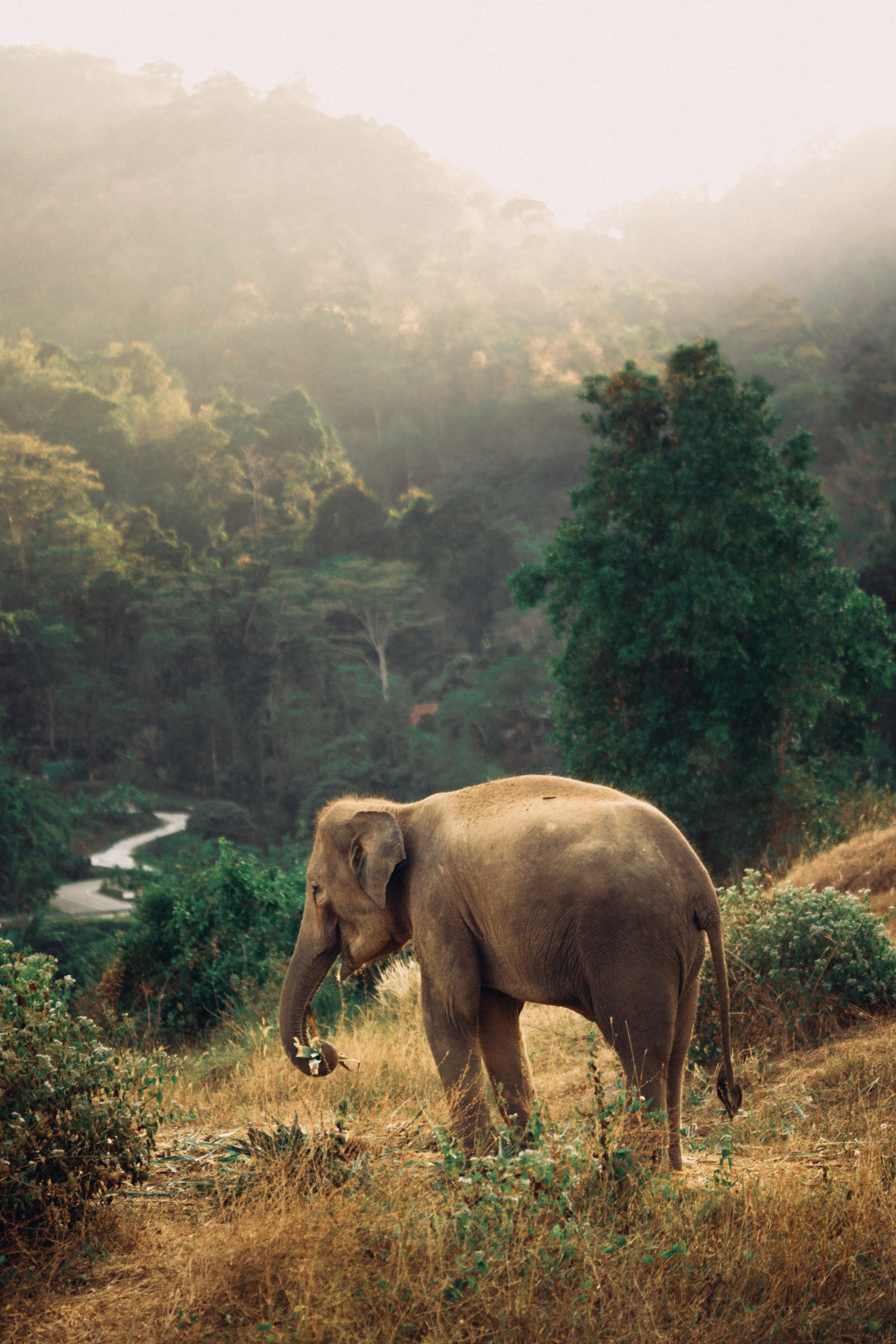
I sense a feeling of cautious optimism about the future of elephant treatment in Phuket on my trips. Montri often visits other elephant parks, offering advice about becoming properly ethical, and reckons that within five years no parks in the area will offer rides. A new worry is that bathing with elephants is being pitched as an alternative.
“Bathing is just as bad,” says Louise. “You’ve got a three-tonne elephant being forced to stay still, when it should be bathing and vocalising and socialising with other elephants.”
Despite these challenges, Lek shares Montri’s optimism. “People are realising that if they want to use elephants for business, they have to care about them,” she says. “The world has moved forward.”
This story originally appeared in the February 2020 issue of Going Places magazine.
